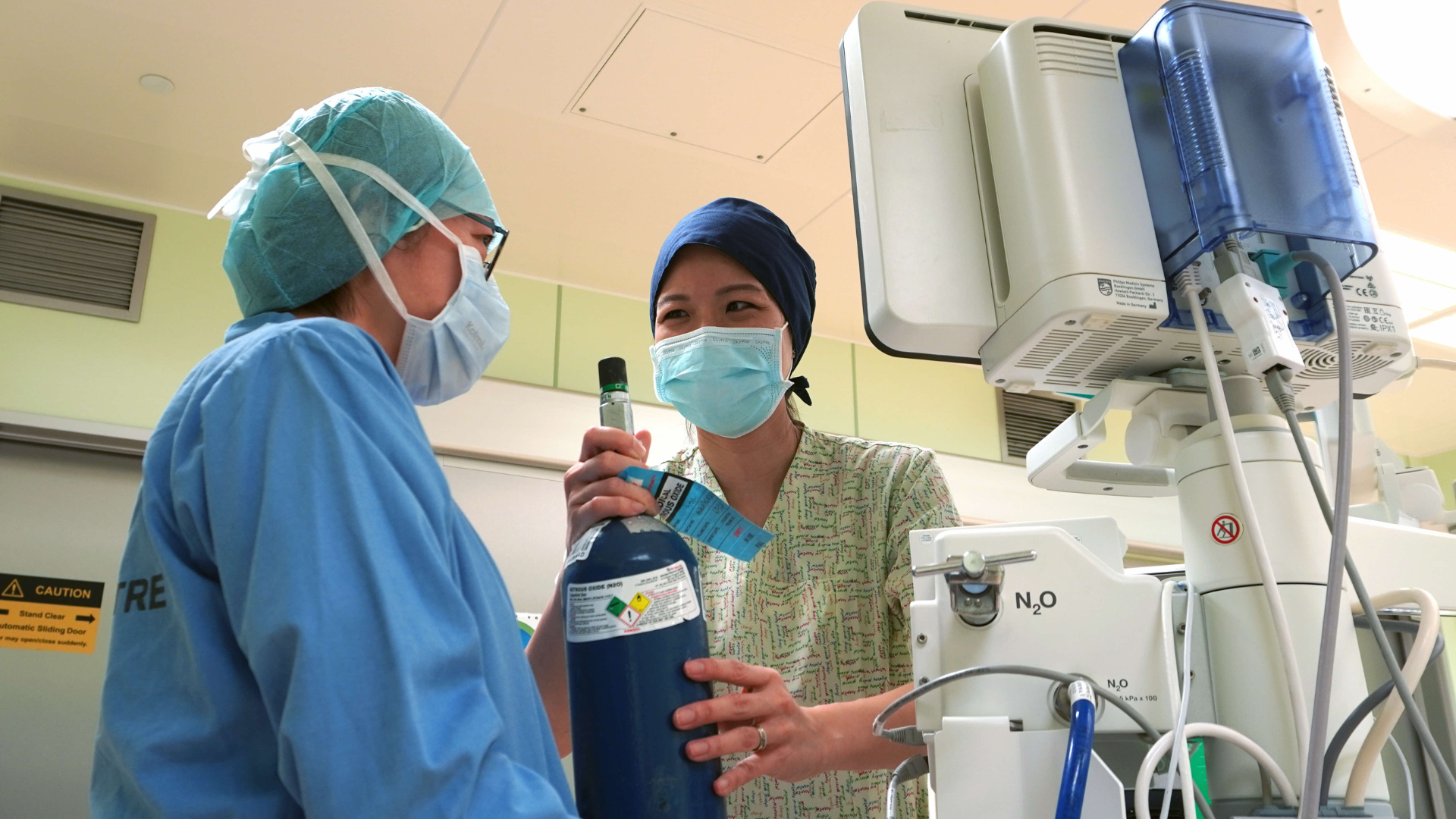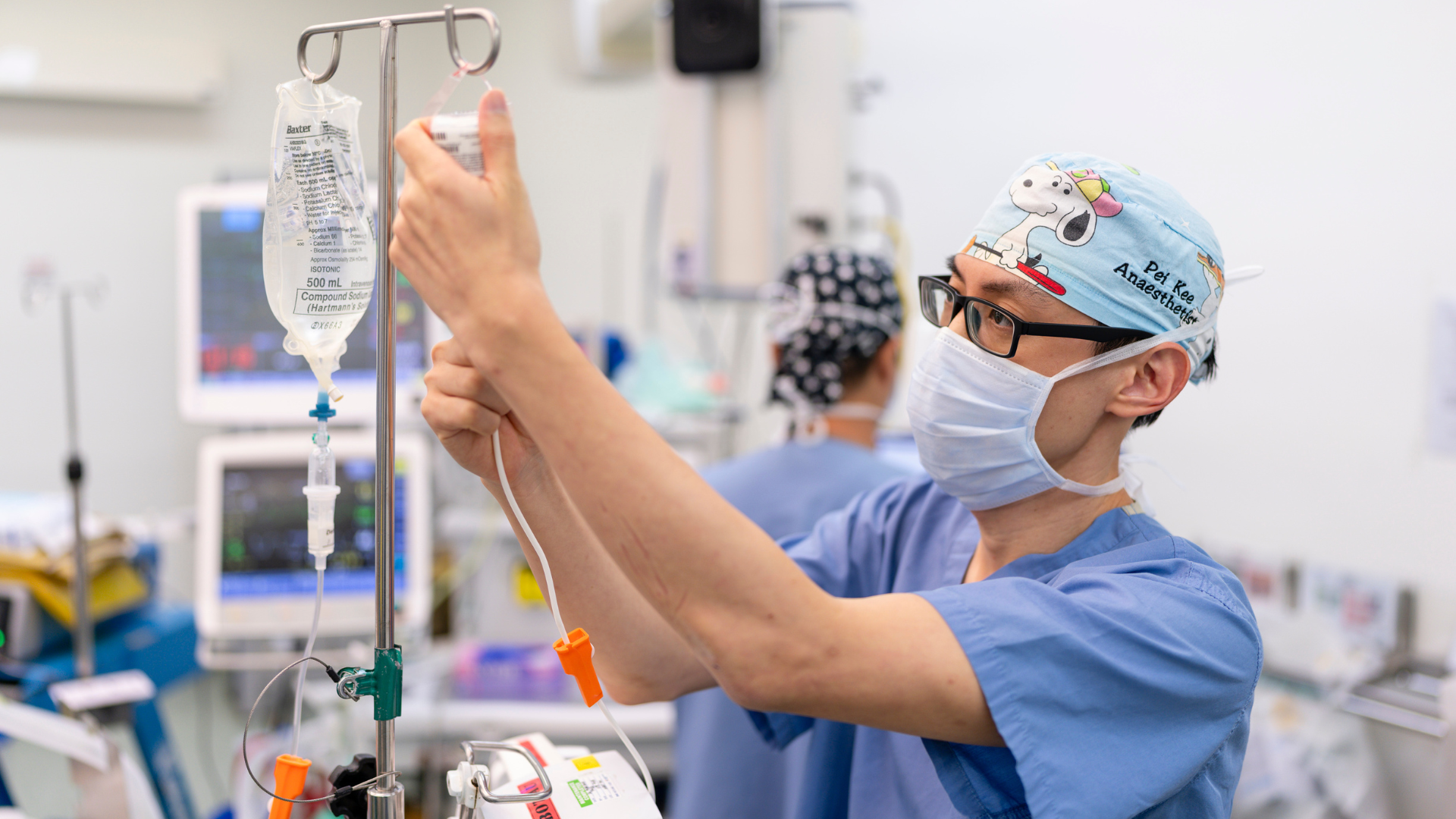
#SustainHealthStories – Closing the Gap: Mitigating Nitrous Oxide Leaks
About 70% to 95% of nitrous oxide in hospitals worldwide is wasted through leakage from manifold systems and pipelines.
Dr Michelle Tan and her multi-disciplinary team at Changi General Hospital (CGH) transitioned from the traditional nitrous oxide manifold system to smaller cylinders directly attached to anaesthesia machines in operating theatres and devised an electronic method to track nitrous oxide usage against procurement.
This change reduces the amount of nitrous oxide leakage in CGH by up to 70% annually, cutting carbon emissions by 804 tonnes. The initiative contributes to environmental sustainability and financial savings, and sets a replicable example for other hospitals.
Find out more here.

Dr Michelle Tan, Staff Physician and Anaesthetist at CGH, mounting the nitrous oxide cylinder to an anaesthesia machine.

#SustainHealthStories – Eliminating Desflurane: A Cleaner Path to Anaesthesia
Dr Poh Pei Kee led a ground-breaking initiative to drastically reduce the use of desflurane, a potent greenhouse gas, at the National University Hospital (NUH).
Inspired by small but impactful gestures from ex-colleagues and mentors, Dr Poh's project has reduced desflurane usage by 98% since 2021. This change is equivalent to removing 411 cars from the road annually and saving S$340,000 each year.
The project faced initial resistance but succeeded through education and strategic implementation of alternative anaesthesia methods, inspiring other hospitals in Singapore to follow suit. Dr Poh's story highlights the power of collective action and incremental change in addressing climate change.

Dr Poh Pei Kee, Consultant Anaesthetist at NUH, preparing for a surgical procedure. Credit: National University Health System

#SustainHealthStories – Intravenous Paracetamol Overhaul: Cutting Carbon Emissions
Dr Joanne Yeo and her team at Changi General Hospital (CGH) spearheaded the use of pre-operative oral paracetamol in place of intravenous (IV) paracetamol for elective surgeries.
Through this programme, IV paracetamol usage was reduced by 50%, saving 3,000 bottles annually and reducing carbon emissions from 194 kg CO2 to 100 kg CO2 per 1,000 cases.
This shift was observed to be just as effective for pain management, with less environmental impact. The project demystifies the notion of sustainability at the expense of patient care, and emphasises the importance of critically evaluating clinical practices for the benefit of both patients and the environment.

Dr Joanne Yeo, Consultant Anaesthetist at CGH, discusses oral paracetamol options with a patient at a pre-surgery consultation.
